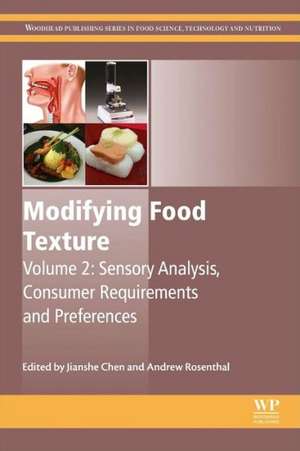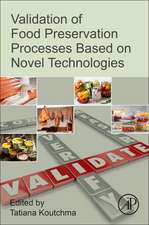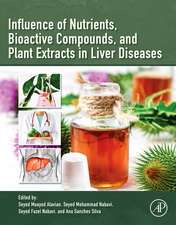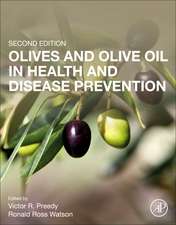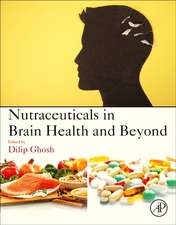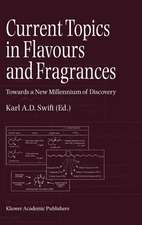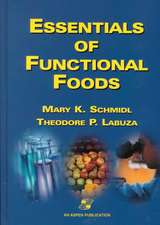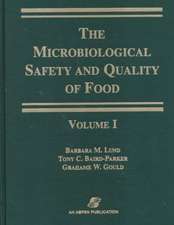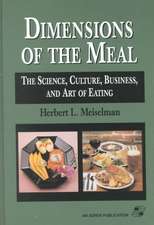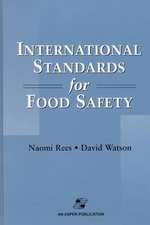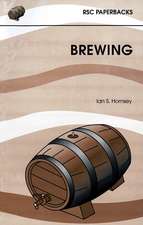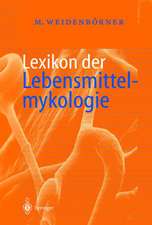Modifying Food Texture: Volume 2: Sensory Analysis, Consumer Requirements and Preferences
Editat de Jianshe Chen, Andrew Rosenthalen Limba Engleză Hardback – 9 iun 2015
This volume covers the sensory analysis of texture-modified foods, taking an in-depth look at the product development needs of consumers and exploring the sensory analysis of food texture and the development of texture-modified foods.
- Explores texture as an important aspect of consumer food acceptance and preference
- Addresses the food textural needs of special groups, including infants, the elderly, and dysphagia patients
- Takes an in-depth look at the product development needs of consumers, exploring the sensory analysis of food texture
| Toate formatele și edițiile | Preț | Express |
|---|---|---|
| Hardback (2) | 866.75 lei 5-7 săpt. | |
| ELSEVIER SCIENCE – 9 iun 2015 | 866.75 lei 5-7 săpt. | |
| ELSEVIER SCIENCE – 9 iun 2015 | 946.43 lei 5-7 săpt. |
Preț: 866.75 lei
Preț vechi: 1135.29 lei
-24% Nou
Puncte Express: 1300
Preț estimativ în valută:
165.87€ • 180.11$ • 139.33£
165.87€ • 180.11$ • 139.33£
Carte tipărită la comandă
Livrare economică 15-29 aprilie
Preluare comenzi: 021 569.72.76
Specificații
ISBN-13: 9781782423348
ISBN-10: 1782423346
Pagini: 300
Dimensiuni: 152 x 229 x 22 mm
Editura: ELSEVIER SCIENCE
ISBN-10: 1782423346
Pagini: 300
Dimensiuni: 152 x 229 x 22 mm
Editura: ELSEVIER SCIENCE
Public țintă
R&D managers in the food industry, particularly those concentrating on niche consumer products and food formulation; hospital dietitians; postgraduate students and academics with a research interest in the areaCuprins
Preface
1 Vocabularies and terminologies of food texture appreciation
Fumiyo Hayakawa, National Food Research Institute, Japan
Part One Sensory analysis and consumer preference of food texture
2 Sensory changes with ageing
Lisa Duizer, University of Guelph, Canada
3 Statistical methods and tools for analysing sensory food texture
Peter Ho, The University of Leeds, UK
4 Instrumental characterisation of texture properties of solid and semi-solid food
Andrew Rosenthal, Coventry University, UK
5 Instrumental characterisation of textural properties of fluid food
Guido Sala, WUR, Netherlands
Part Two Modifying texture for specific consumer groups
6 Texture-modified meals for hospital patients (e.g. dysphagia)
Julie Cichero, University of Queensland, Australia
7 Texture modification for elderly people
Karin Wendin, SIK, Sweden
8 Modifying the texture of foods for infants and young children
Sophie Nicklaus, INRA, France
9 Texture design of institutional food (e.g. schools, hospitals)
Derek Johnson, National Association of Care Catering, UK
10 Texture design of ‘free from’ foods (e.g. GF bread)
Maria Papageorgiou, ATEI of Thessaloniki, Greece
1 Vocabularies and terminologies of food texture appreciation
Fumiyo Hayakawa, National Food Research Institute, Japan
Part One Sensory analysis and consumer preference of food texture
2 Sensory changes with ageing
Lisa Duizer, University of Guelph, Canada
3 Statistical methods and tools for analysing sensory food texture
Peter Ho, The University of Leeds, UK
4 Instrumental characterisation of texture properties of solid and semi-solid food
Andrew Rosenthal, Coventry University, UK
5 Instrumental characterisation of textural properties of fluid food
Guido Sala, WUR, Netherlands
Part Two Modifying texture for specific consumer groups
6 Texture-modified meals for hospital patients (e.g. dysphagia)
Julie Cichero, University of Queensland, Australia
7 Texture modification for elderly people
Karin Wendin, SIK, Sweden
8 Modifying the texture of foods for infants and young children
Sophie Nicklaus, INRA, France
9 Texture design of institutional food (e.g. schools, hospitals)
Derek Johnson, National Association of Care Catering, UK
10 Texture design of ‘free from’ foods (e.g. GF bread)
Maria Papageorgiou, ATEI of Thessaloniki, Greece
